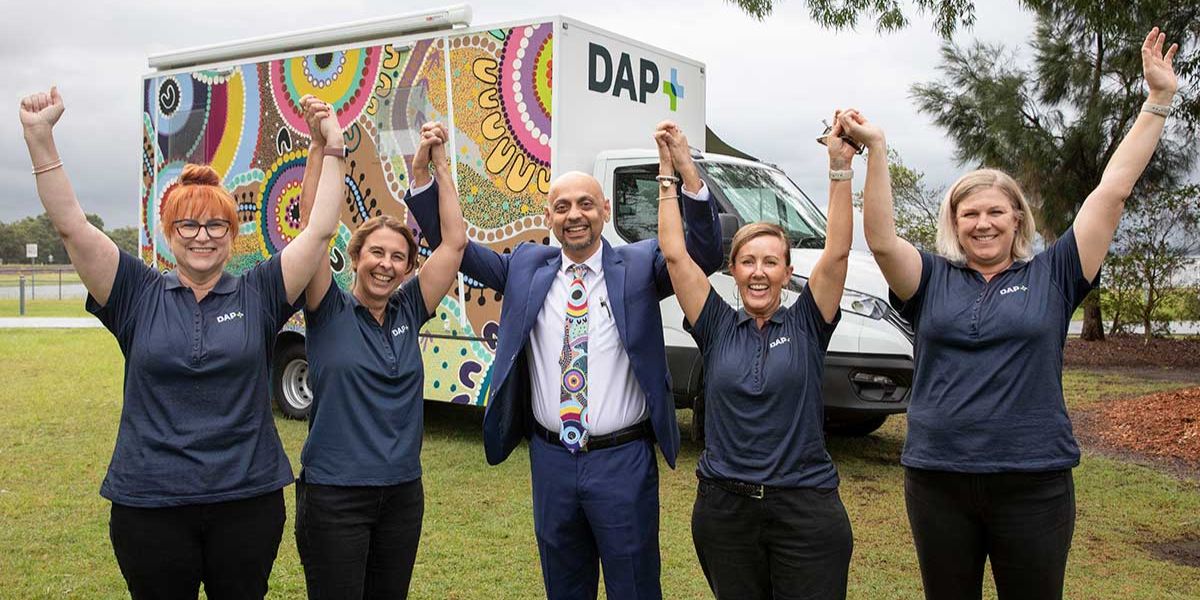The Diabetes Alliance Program+ Medibus is making its annual tour of the region soon, bringing diabetes specialists to those who might not be otherwise able to get the diagnosis or treatment they need.
The Medibus will be in Narrabri on June 17th and 18th, then head out to Wee Waa on the 19th, followed by Tamworth later in the year, from September 16th to 19th and will then move south to the Upper Hunter from the 27th of October to the 7th of November.
A referral from your doctor or healthcare organisation is necessary to visit the bus, and it’s recommended you get in early if you feel you need to attend.
“Our region faces a higher burden of diabetes than the state average, and many rural areas struggle with access to care,” Hunter New England and Central Coast Primary Health Network Chief Executive Richard Nankervis said.
The Medibus, Nankervis said, will bring “tailored, best-practice diabetes management directly into vulnerable communities.”
Diabetes affects nearly one in twenty Australians nationally, but within the Hunter and New England regions, that number rises to one in eight, making it one of the most critical healthcare issues for the area, and while diagnoses of diabetes had increased nearly threefold during the 2000s, as awareness has grown that number has been slowly falling since 2011.
It disproportionately affects those from lower socio-economic backgrounds, and Indigenous Australians – who are also those who have the most limited access to healthcare, especially in regional, rural, and remote communities, and has been described as one of the most critical healthcare issues – hence the need for the Medibus.
Indigenous Australians are 2.9 times more likely to have diabetes, and people from lower socio-economic areas were 2.3 times as likely to have, with people living in rural and remote areas 2.5 times more at risk than urban Australians, according to the Australian Institute of Health and Welfare.
Diabetes can result in a whole host of health complications, from liver failure, amputations, heart disease, blindness, and stroke.
The Medibus is a fully-equipped mobile clinic, staffed by specialists needed for the diagnosis and treatment of diabetes, including endocrinologists, podiatrists, dietitians, and Aboriginal health workers, and was launched ten years ago by the Hunter New England Health District and the Central Coast’s Primary Health Network to bring these services to remote communities.
The bus also trains local medical practitioners in diabetes management and diagnosis.
Tracey McCosker, the Hunter New England Health District’s CEO, called the Medibus “a game changer for our rural and regional communities.”
“By bringing specialist diabetes care directly to people’s doorsteps, it ensures that everyone, regardless of where they live, can access the support they need to manage diabetes and improve their quality of life,” McCosker said.
After initial success in its first seven years of being on the road, the Medibus’ role was expanded with a $12.4 million grant from the Colonial Foundation in 2022, adding research to its duties in the community, with Hunter Medical Research Institute, and University of Newcastle to not just analyse the impact the Medibus has one the community, but also seek ways that the model can be improved – and, hopefully, rolled out elsewhere in the country.
Frances Kay-Lambkin, Director & Chief Executive of the HMRI, said that the data collected would be vital to proving the bus’ value.
“By collecting robust data on patient outcomes and system-wide impacts,” Kay-Lambkin said, “We will demonstrate the program’s effectiveness and build a case for expansion beyond the Hunter New England region.”
University of Newcastle Vice-Chancellor, Professor Alex Zelinsky AO praised the Medibus model, saying that “through research and collaboration, DAP+ is leading the way in diabetes care and improving health outcomes for communities across the Hunter and New England.”
The grant, according to DAP+, would allow them to focus more on the regional communities, and extend to treatment model to include services such as telehealth consultations, advice helplines, and an app, and that by rollin in the research conducted by HMRI and UON show how the Medibus model can effectively benefit the healthcare system.
Ultimately, the goal is to expand not only the Medibus to areas beyond its current territory, but also apply to treat other “chronic and complex health conditions, which could have a big impact on health outcomes for rural and remote communities” according to the Colonial Foundation.
If you or anyone you know could benefit from the Medibus, please contact your healthcare professional for a referral.
Like what you’re reading? Support New England Times by making a small contribution today and help us keep delivering local news paywall-free. Donate now

